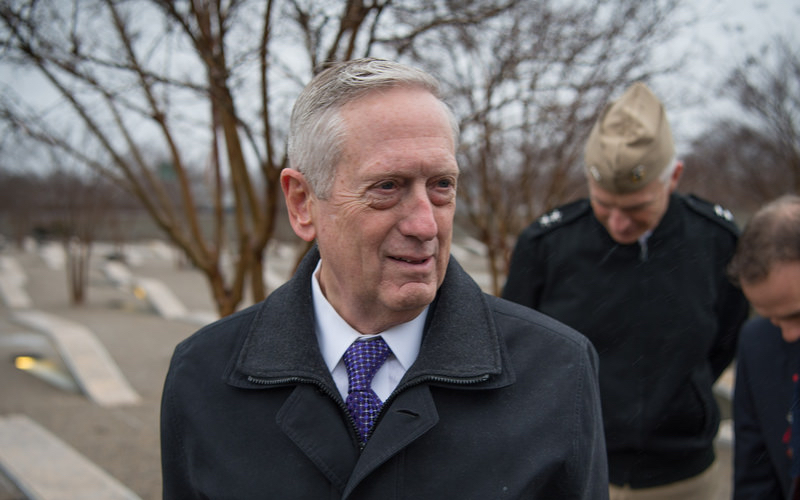
Trump Administration Places New Sanctions on Iran: Playing with Fire?
A few weeks into Trump’s presidency, the U.S. still continues to ‘trump’ around the Middle East. On Friday, the Trump administration launched more sanctions against Iran in response to Iran’s test firings and military exercises. The Secretary of Defense, James ‘Mad Dog’ Mattis, referred to Iran as “the single biggest state sponsor of terrorism in the world,” adding that its “misconduct and misbehavior’’ would have to be addressed.” In response to Mattis’ comments, Iran’s Vice President Eshaq Jahangiri stated that “The Iranian government and nation do not care in the least for the worn-out and threadbare remarks made by the American officials.’’
During his election campaign, President Trump vowed to end Iran’s nuclear program and not tear up the nuclear deal, but renegotiate for a better deal. The new sanctions against Iran were targeted at 12 Iranian companies and 13 individuals with connections to Iran’s nuclear missile program.
Fundamentally speaking, the Obama and Trump foreign policy agendas in the Middle East are significantly different. Obama called for a new world order in the region to break up the old polarized idea of Iran and its allies on one side and Saudi Arabia, Israel, and its allies on the other. Obama tried to envision a new future for the Middle East with peace and prosperity by creating ‘shades of grey,’ but this ultimately failed. At the same time, the Obama administration has sold over $100 billion USD of arms to the Saudis while the U.S. government knew that Saudi Arabia was involved with vicious acts in Syria. In addition, they backed Saudi Arabia’s assault of Yemen where many Yemenis are lacking humanitarian aid. Trump is the complete opposite because he wants to go back to the old world order, especially during the Reagan Administration, whereby Israel calls the shots and Saudi Arabia is the second best friend of the United States because of energy, arms sales, and oil. What we’re seeing now is an acceleration of this and it is worrying.
It seems that the new administration is replacing Russia as the main threat with Iran because it looks like the unifying enemy for the neoconservatives, and members of Congress. But at the same time, a hostile relationship with Iran can provoke Russia, even China to react to the sanctions. Even though Moscow has distanced itself a little from Tehran, the Russians are still working closely on a number of issues with Iran and they are both strong allies in the Syria crisis, as well as in the Shanghai Cooperation Organization (SCO). There is a focus away from Russia and towards Iran, possibly even China in the future. We knew from the beginning that Trump was going to use hawkish rhetoric towards Iran and favorable rhetoric towards Israel, but he has inherited an ‘American Empire’ that is not going to reverse American interests in the Middle East. However, Trump’s foreign policy is significantly different from the previous administration.
The policymakers in Iran are probably all sitting around thinking to themselves ‘we’ve all heard this nonsense before’ and this is nothing new. In response to the new sanctions, Iran knows that the United States might not change its approach towards Tehran. Donald Trump and his cabinet are moving towards an agenda that allows the United States to closely work with Israel and Saudi Arabia to carry out an anti-Iranian campaign.
Iran is looking more like the new pariah state that the United States must do battle with for geopolitical dynamics so Trump can accelerate a Middle East policy that serves American interests. There is not much for Trump to latch onto when it comes to Iran, but look at Israel and Saudi Arabia. There are business interests, defense interests, and more importantly, oil. The Trump Administration is moving at incredible speed and has created increased tension with Iran almost three weeks into office.
Many Americans believe that Iran is a threat, but let’s not forget that since 1979, Iran, despite having a very authoritarian government with elected officials, has never attacked other countries, and since the Iran-Iraq War in the 1980’s, the Islamic Republic has vowed to never fight in another war. In this time period, the United States had already toppled many governments, and invaded several countries and yet Iran is still considered a threat to peace according to the United States.
From the American perspective, the sin Iran has committed after the 1979 revolution was backing Hezbollah against Israel’s occupation of Palestine and this can never be forgiven. The United States still considers Hezbollah a terrorist organization and there is no question that Iran supports Hezbollah. Also, Iran helped the resistance in Iraq against the U.S. invasion and occupation in 2003. So, the United States, from its perspective, has reasons to hate Iran. But, the United States’ regional hegemony in the Middle East has gained so much support from Saudi Arabia, the Gulf States, and Israel that it is necessary for the United States to continue its violent acts in its own interest and in the interests of its allies in this region of the world.

